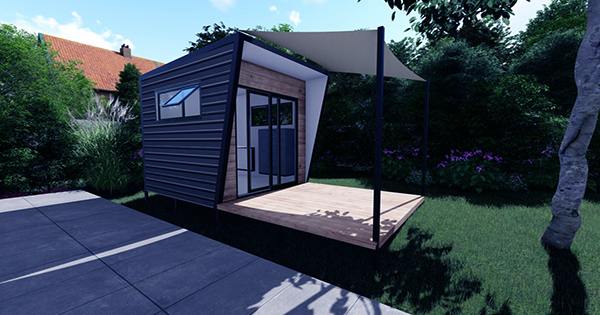Tiny residences may have lost their allure in the COVID era, but a reinvented future for remote work may require tiny offices.
People are hungry for a calm environment to think these days, according to Denizen founder and CEO Nick Foley – and they’re willing to pay for it.
Foley was formerly the chief product officer and head of industrial design at Jump Bikes, a bike-sharing firm that Uber purchased for $200 million in 2018. Denizen is attempting to answer a single question: “Can you create an office space as a product that is simply a great experience for a single person to have the perfect workday?”
WeWork, according to Foley, got some things wrong when it came to optimizing the work experience. While many people enjoy the social aspects of coworking, a bustling setting full of people working on various projects might be counterproductive to the kind of flow state that some jobs require. Denizen’s idea is to create a small army of pre-built independent offices with outlets, USB ports, videoconferencing cameras, speakers, an integrated router, and even a whiteboard wall, all in less than 100 square feet.
Denizen’s office pods are elegantly designed, with privacy-enhancing windows that can be turned opaque in seconds, recyclable materials, and a look that fits right in with Dwell (they were actually just featured in Dwell, because of course they were). Denizen is all about offering individuals the resources they need to have “motivated, productive workdays,” according to Foley. “The ceiling is incredibly high, the glass is all around you — it just seems big and huge,” he said. They aren’t just pretty pictures; Foley’s friend who works for NASA’s Jet Propulsion Laboratory gave us a virtual tour of his own Denizen-built mini workstation.
Denizen had only intended to rent its pre-fab office pods to businesses on a monthly subscription basis at first. However, the company now aims to sell the freestanding offices on wheels to individuals who may keep them at their personal residences due to high demand from people stuck working from home and looking for an option.
The Denizen model, according to Foley, would be a good fit for a company’s COVID-era real estate strategy. Companies are reducing the expensive and often large campuses that have long defined them in favor of more flexible, tailored choices that better match the future of work as fewer workers come into the office. Foley estimates that each smartpod will cost roughly $1,000 per month to rent for a company with a bulk agreement.
















